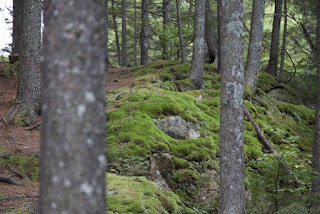Upon her receiving the news that she was no longer allowed to sing, her husband went to buy a synthesizer in the store to help her with rythm. What is intended within the interview is for both the woman and her husband to be 'ridiculous', because of the way that they express themselves. Yet, one point I found interesting within the story/interview: which was that the husband was actually supporting his wife to deal with her problem. Meaning, he took equal ownership of the issue and they literally worked at it together because it was that important for his wife. So, what stood out for me is the quality of the collaboration between the man and the wife and how they stood as a team, even though their endevour might seem ridiculous to external observers. I actually found this last dimension to be completely irrelevant and actually besides the point.
In reality what was being shown is how much a person can care for another person that they will walk a point like that together. Indeed, when the intent is pure, is does not matter what it looks like to external observers. Consequently, what the interview is actually revealing is that we will often not unconditionally support those that we care about because of the fear of ridicule. What does that say about us?
For more information about writing, self-forgiveness and applying self-change, visit: http://desteni.org






